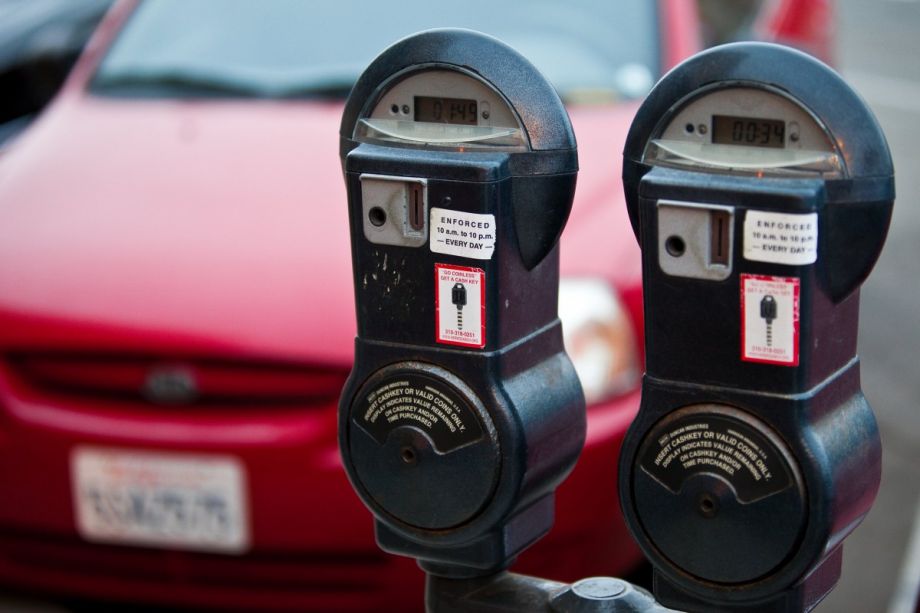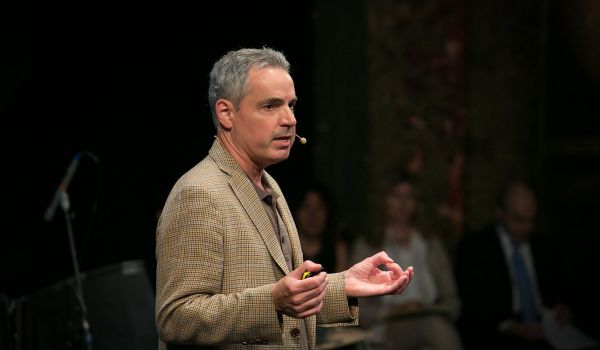Late last month, Quartz released data that showed that Washington D.C. fines its residents more than any other U.S. city. In 2017, Washington D.C. raked in an average of $261 per resident from “fines and forfeits” — mostly traffic tickets and parking violations — and their associated fees. Chicago tied for second place with New York, at $118 per resident.
Some Chicagoans looked at that number with alarm. In 2018, ProPublica published a damning look into the fines and fees associated with Chicago’s City Vehicle Sticker — a sticker that every car registered in Chicago needs to have to drive and park in the city. The investigation found that city sticker fines had resulted in $275 million worth of fines alone since 2012, so City Clerk Anna Valencia decided to do something about it.
A year and a half ago, Valencia launched the Chicago Fines, Fees and Access Collaborative to review the city’s fines and fees practice with the goal of creating and administering both short-term and long-term reforms to traditional practices.
“We learned from community advocates and the ProPublica report that what was happening was we were putting people into debt because they couldn’t pay city sticker tickets,” Valencia explains of the $200 ticket that can come with not paying the $80 annual fee for a city sticker, something not every resident can afford. She recalls a particularly moving anecdote from a CTA bus driver who was $5,000 in debt from city sticker fees and couldn’t afford the $2,500 down payment that was required to initiate a payment plan with the city. He eventually lost his license as a result, and therefore his job, too.
“As the city clerk, when I heard this, it was like, government isn’t about putting barriers in front of people. We should be removing barriers in people’s lives and make it easier for them to live their daily lives in peace and thrive and not be burdened by the city,” she says.
In December of 2018, the collaborative began what Valencia calls a collaboration with community members, from parents to academics and city department heads. After four months of town halls, the collaborative published a report of its findings along with 14 initial recommendations for reform. Number one on that list was reforming city sticker tickets, which was also the first recommendation to be accomplished.
“We were seeing that one out of three people were paying their city sticker tickets,” Valencia says, and that the burden, as with most fines and fees, was disproportionately experienced by Chicago’s “black and brown residents on the south and west sides.” In addition, when residents are unable to pay their fines and fees, the whole structure as a revenue stream for cities begins to fall apart.
In addition to no longer suspending licenses for non-moving violations like parking or city sticker tickets, the city also forgave its residents city sticker debt across the board as long as they came into the clerk’s office and purchased a city sticker for either the traditional one- or two-year periods or a newly introduced four-month sticker for $29. “We saw a 910 percent increase in compliance,” Valencia says.
According to Heidi Goldberg, the Director of Economic Opportunity and Financial Empowerment at the National League of Cities, this is exactly what cities should be doing — avoiding punishments like turning off water or suspending driver’s licenses and, instead, helping residents become compliant and enter into programs that can help get them out of debt. “Cities have to think about how to help residents pay,” she says.
Goldberg has worked specifically on the league’s Cities Addressing Fines and Fees Equitability (CAFFE) project that is working to help six cities — Aurora, Co; Baton Rouge, LA; Durham, NC; Lansing, MI; Nashville, TN; and St. Paul, MN — assess and reform their fines and fees structures with funding from JPMorgan Chase and Co.
After an assessment of their particular fines and fees structures, each city has selected one particularly problematic fine or fee. Aurora is focusing, for example, on speeding tickets that are 10-19 mile- per hour over the limit — a ticket that residents rarely pay back — while St. Paul is working on fines and fees related to impound lots, including towing.
The project will run through this coming summer and is focused across the board on connecting residents with financial empowerment resources to get their debt and finances stabilized, particularly those who might not otherwise encounter or elect to use such a service. “We know that if you have debt to a city, you probably have debt in other places. Debt is not siloed,” Goldberg says.
“Cities rely on fines and fees because it’s what they’ve always been doing,” Goldberg says. “I think they’re starting to learn that it’s just not working. If you’re relying on people to pay their debt but they can’t afford to pay it, then you’re not going to get that money. More and more debt is going to collection and cities are either paying for collection services and not seeing revenue” or allocating already strained in-house resources to debt collection.
While Goldberg is clear that cities are not going to remove all fines and fees, it’s imperative that cities decipher which fees are necessary, appropriate and equally impacting residents while also being proactive about what can be done before tickets are issued in the first place. She equates it to the move that many institutions are making to eliminate late fees in libraries. “Does it make sense to put a fine on people for trying to use the library? Do you want to keep them out of the library?” she asks.
For critics who see nothing but lost revenue in these kinds of reforms, Valencia has this to say: “What we’ve talked about is looking at the people behind the numbers when making revenue decisions. When these fines and fees have unintended consequences on low- or vulnerable-income people… Even though we forgave some debt, only one out of three people were paying anyway so it’s money we were not going to see. That 910 percent increase in compliance shows that people want to be in compliance and that raises revenue.”

Cinnamon Janzer is a freelance journalist based in Minneapolis. Her work has appeared in National Geographic, U.S. News & World Report, Rewire.news, and more. She holds an MA in Social Design, with a specialization in intervention design, from the Maryland Institute College of Art and a BA in Cultural Anthropology and Fine Art from the University of Minnesota, Twin Cities.
Follow Cinnamon .(JavaScript must be enabled to view this email address)








_600_350_80_s_c1.jpg)






